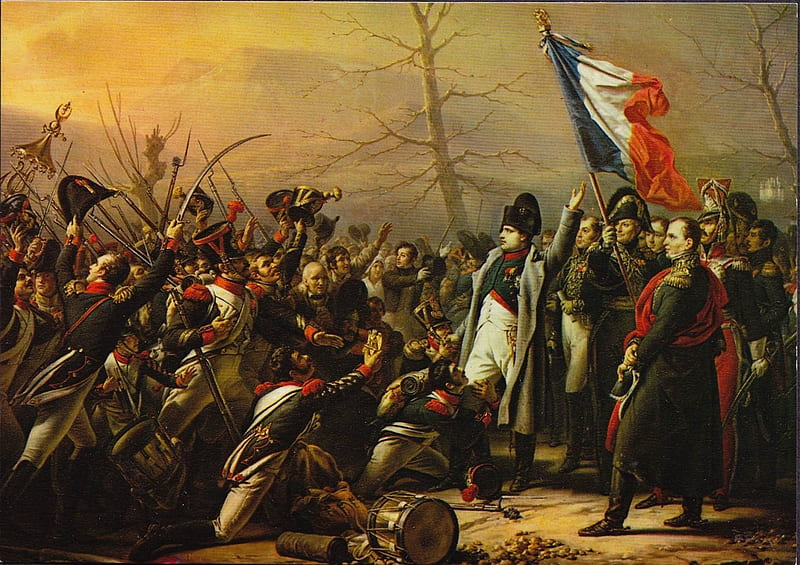
Napoleon's biography
Nationalism
Nationalism played a crucial role in Napoleon's defeat as it emerged among the conquered people he marched through, uniting them against the invaders and fostering a sense of national identity. This was evident in Germany, Spain, Italy, and Poland, where the conquered populations developed a strong aversion to the French occupation and witnessed the power of national feeling.
Disaster in Russia
Napoleon's downfall began in 1812 with his ill-fated decision to invade Russia. The Russians, refusing to comply with the Continental System, drew Napoleon into a trap. The Grand Army was made up of 600,000 soldiers faced a formidable Russian strategy of retreat, burning villages, and avoiding direct confrontation. Despite winning an indecisive victory at Borodino, Napoleon's forces reached Moscow to find the city in flames. Lacking supplies and facing the harsh Russian winter, Napoleon led the "Great Retreat" west, resulting in the loss of the majority of his troops.
The military disaster in Russia led to a weakened French army, and other European states rose against Napoleon. Paris fell in 1814, and Napoleon was exiled to the island of Elba. However, he escaped exile, returned to France, and briefly reclaimed power in 1815. The allied powers, including Russia, Great Britain, Austria, and Prussia, rallied against him. At the Battle of Waterloo in Belgium on June 18, 1815, Napoleon suffered a decisive defeat at the hands of the combined British and Prussian forces led by the Duke of Wellington.
The Final Defeat
The final chapter of Napoleon's story unfolds with his escape from exile on the island of Elba. The newly restored French king lacked support, and the French people were unwilling to relinquish the allure of their former imperial glory. Equally determined, Napoleon, restless in exile, returned to France without resistance. When the new king dispatched troops to apprehend him, Napoleon boldly addressed them, declaring himself their emperor. His charismatic appeal worked, and the soldiers, shouting "Vive l'Empereur!" ("Long live the Emperor!"), rallied to his side. On March 20, 1815, Napoleon triumphantly reentered Paris.
The major European powers—Russia, Great Britain, Austria, and Prussia—swiftly responded to Napoleon's return, vowing to defeat the man they viewed as the "Enemy and Disturber of the Tranquility of the World." Undeterred, Napoleon assembled another French army comprised of loyal veterans from across the country. He prepared to confront the allied troops stationed in Belgium.
The decisive Battle of Waterloo on June 18, 1815, witnessed Napoleon facing a combined British and Prussian force led by the Duke of Wellington. The encounter resulted in a bloody defeat for Napoleon, sealing his fate. The victorious allies then exiled him to St. Helena, a small island in the south Atlantic. Napoleon remained in exile until his death in 1821. Despite his physical absence, his memory continued to cast a long shadow over French political life for many decades.